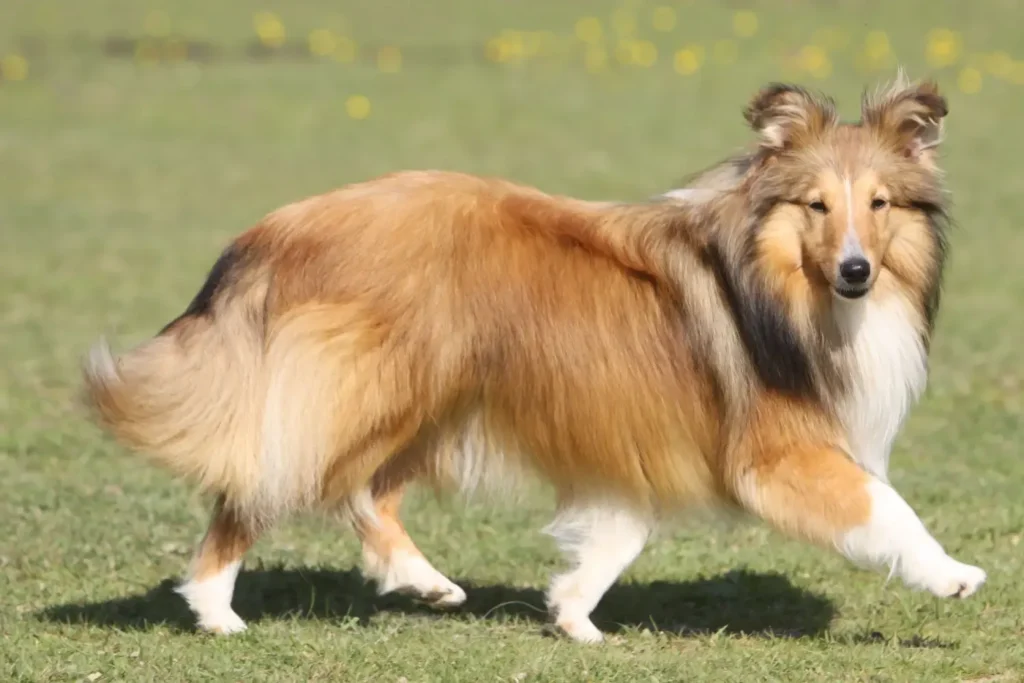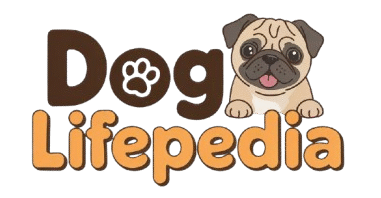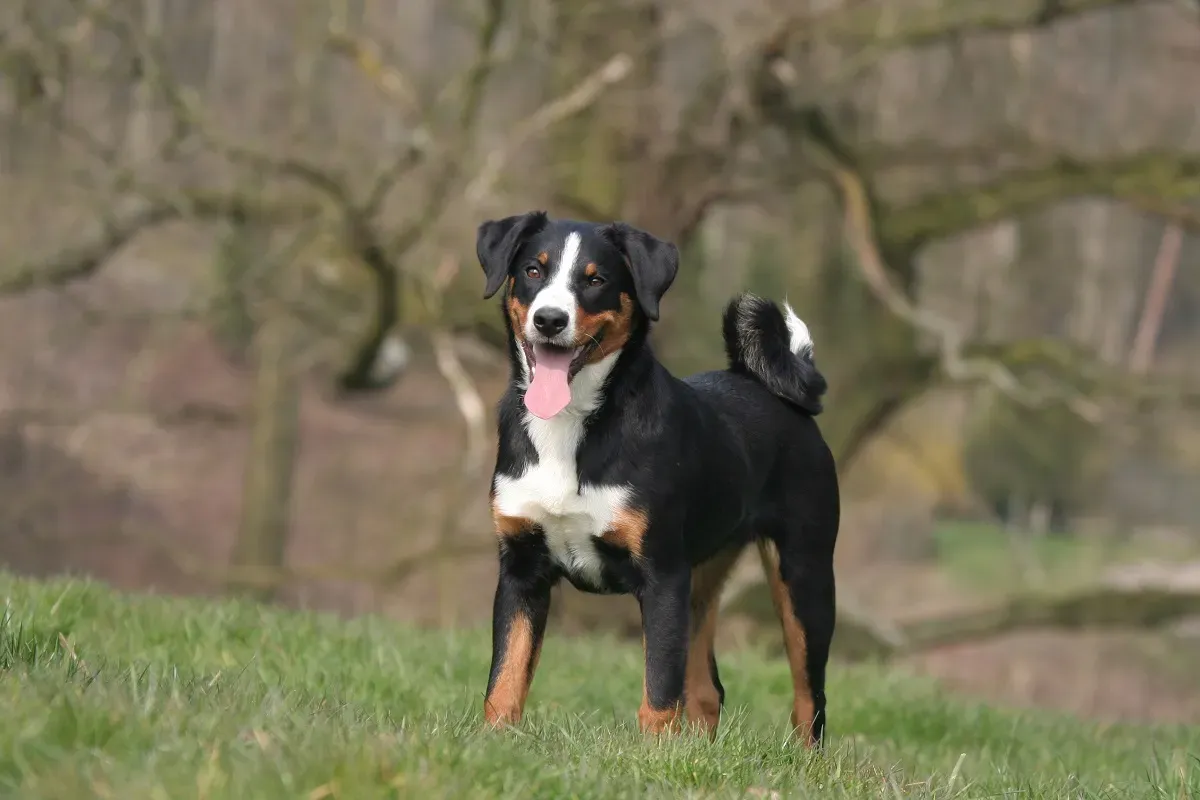
Sheltie Dog
Heena
June 13, 2025

The Shetland Sheepdog, affectionately called the Sheltie, is a small, elegant herding breed known for its intelligence, loyalty, and gentle nature. Originating from the Shetland Islands of Scotland, Shelties were bred to herd sheep in harsh environments. Today, they’re popular family pets in the UK and USA for their affectionate temperament, agility, and stunning good looks.
Despite their small stature, Shelties are packed with energy and talent. They’re often described as “a Collie in miniature”, combining beauty, brains, and a deep desire to please.
Breed Overview
- Breed Name: Shetland Sheepdog (Sheltie)
- Group: Herding Group (AKC) / Pastoral Group (UK Kennel Club)
- Origin: Shetland Islands, Scotland
- Height: 13–16 inches (33–41 cm)
- Weight: 15–25 lbs (7–11 kg)
- Life Expectancy: 12–14 years
- Temperament: Intelligent, loyal, affectionate, alert
Breed Colors & Markings
Shelties have a long, dense double coat that comes in several stunning color patterns:
- Sable and White (shades of gold to mahogany with white)
- Blue Merle and White
- Black and White
- Tricolor (black, tan, and white)
Most Shelties have a white ruff, chest, and leg markings. Their coat is one of their most distinctive features, requiring regular grooming.
Temperament & Personality
Shelties are:
- Loving and devoted to their families
- Highly intelligent and easy to train
- Gentle and patient with children
- Sensitive to tone—they respond best to calm, kind voices
- Watchful and alert, often barking to signal visitors
While they may be reserved with strangers, Shelties are not aggressive. They thrive in family settings and form strong bonds with their people.
Communication & Intelligence
Shelties are among the most intelligent breeds:
- Quick learners: They rank in the top 10 for obedience and working intelligence
- Expressive barkers: They often bark when excited, alarmed, or seeking attention
- Body language: They use tail wags, ears, and eye contact to communicate mood
- Sensitive and intuitive: They often respond to emotional cues from humans
Their intelligence and responsiveness make them stand out in obedience and agility competitions.
Health & Lifespan
Shelties are generally healthy, but like all breeds, they have some genetic risks:
- Hip dysplasia
- Collie Eye Anomaly (CEA)
- Progressive Retinal Atrophy (PRA)
- Hypothyroidism
- Dermatomyositis (skin/muscle condition seen in some lines)
Reputable breeders screen for these conditions. With proper care, Shelties often live 12–14 years or more.
Grooming Needs
The Sheltie’s lush coat needs consistent care:
- Brushing: 2–3 times per week, daily during shedding season
- Bathing: Every 4–6 weeks, or as needed
- Trimming: Keep feet, ears, and hocks tidy
- Ear cleaning and nail trimming: Regularly done
- Dental care: Brush teeth 2–3 times a week
Although they shed seasonally, their grooming becomes manageable with routine care.
Exercise Requirements
Despite their size, Shelties are active and love to move:
- Daily walks: At least 30–60 minutes
- Mental stimulation: Games, training, or puzzle toys
- Agility and obedience: They excel in competitive dog sports
- Safe play areas: Fenced yard or secure leash walks
Without sufficient exercise, they may develop behavioral issues or anxiety.
Training & Socialisation
Shelties thrive with training and routine:
- Start young: Puppy socialisation classes are ideal
- Positive reinforcement: Praise, treats, and play work best
- Consistency and gentleness: Harsh corrections can make them anxious
- House training: Usually easy with regular routines
- Leash manners: Important due to their alert nature and prey drive
Because of their eagerness to learn and please, Shelties are perfect for obedience, tricks, and canine sports.
Nutrition & Diet
Shelties do best on a well-balanced, quality diet:
- Dry kibble or wet food formulated for small to medium active breeds
- Two meals daily with portion control to prevent weight gain
- Avoid table scraps: Especially those high in fat or dangerous to dogs
- Supplements: Omega-3s for skin and coat health, if advised by a vet
- Fresh water: Always available
Monitoring their calorie intake helps maintain healthy weight and energy.
What to Expect as an Owner
Owning a Sheltie means:
- Sharing your life with a bright, devoted companion
- Providing daily physical and mental stimulation
- Being ready for consistent grooming
- Living with a dog that barks to alert—they make excellent watchdogs
- Enjoying loyalty, love, and a gentle spirit in your home
Shelties are wonderful family pets, especially for homes with time to train and care for them.
Is the Sheltie Right for You?
Choose a Sheltie if you want:
- A clever, obedient, and affectionate dog
- A breed that’s great with kids and eager to please
- A companion for dog sports and structured training
- A beautiful, long-coated breed that’s full of personality
Avoid if you:
- Want a quiet, low-energy breed
- Can’t commit to regular grooming
- Prefer an independent dog over a people-focused one
Final Thoughts
The Sheltie is a small dog with a big heart and even bigger brain. With the right care, consistent training, and lots of affection, Shelties become loving, loyal, and lively members of any home. Whether in a suburban home in the USA or a countryside cottage in the UK, the Shetland Sheepdog is a delightful and rewarding companion.
Table of Contents
Choose this breed if you want:
- A powerful, dignified protector
- A dog that’s intelligent, trainable, and loyal
- A companion for active households
- A breed with a strong work ethic and calm demeanor
Avoid if you want:
- A low-maintenance or small dog
- An easygoing, independent breed
A breed suitable for apartment living with minimal time commitment

